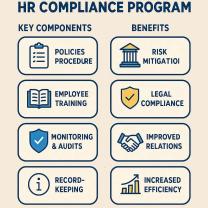What are examples of outsourcing?
Outsourcing involves contracting out specific business functions or tasks to external third-party service providers. This practice can help businesses reduce costs, access specialized expertise, and focus on their core activities. Here are some common examples of outsourcing:
Information Technology (IT) Outsourcing:
- Many companies outsource IT functions such as helpdesk support, software development, network management, and cybersecurity services to IT service providers.
Customer Support and Call Centers:
- Businesses often outsource customer support, telemarketing, and call center services to companies that specialize in managing customer interactions.
Human Resources (HR) Outsourcing:
- HR outsourcing can involve hiring external firms to handle tasks like payroll processing, recruitment, benefits administration, and employee training.
Accounting and Financial Services:
- Companies may outsource accounting, bookkeeping, tax preparation, and financial analysis to accounting firms or financial service providers.
Manufacturing Outsourcing:
- Manufacturing companies often outsource the production of components or finished products to contract manufacturers or offshore facilities to reduce production costs.
Content Creation and Marketing:
- Businesses may outsource content creation (e.g., blog writing, video production) and digital marketing (e.g., SEO, social media management) to content agencies or marketing firms.
Logistics and Supply Chain Management:
- Outsourcing logistics and supply chain functions can include warehousing, transportation, inventory management, and order fulfillment services.
Research and Development (R&D):
- Companies in various industries may collaborate with external research firms or universities for R&D projects to access specialized expertise and resources.
Legal Process Outsourcing (LPO):
- Legal firms and corporations often outsource legal research, document review, and other legal tasks to LPO providers to reduce costs.
Facilities Management:
- Businesses outsource facilities management services, including building maintenance, security, and janitorial services, to specialized providers.
Content Moderation:
- Social media platforms and online communities often outsource content moderation tasks to external teams to review and enforce community guidelines.
Transcription and Translation Services:
- Medical, legal, and media companies may outsource transcription and translation services to convert audio or written content into different languages.
Data Entry and Data Processing:
- Companies may outsource data entry, data cleansing, and data processing tasks to handle large volumes of data efficiently.
Payroll and Benefits Administration:
- HR outsourcing can extend to payroll and benefits administration, where external firms manage employee payroll, taxes, and benefits.
Print and Mail Services:
- Businesses may outsource printing, mailing, and document management services to companies that specialize in these functions.
Market Research and Surveys:
- Organizations often outsource market research, consumer surveys, and data analysis to research firms to gain insights into consumer preferences and market trends.
Outsourcing can be a strategic decision for businesses to improve efficiency, reduce costs, and leverage specialized skills. The specific functions or tasks a company chooses to outsource depend on its goals, industry, and unique needs.
Outsourcing Examples: A Closer Look at Business Practices
Outsourcing is the process of contracting out a business process or function to a third-party provider. Outsourcing can be used to save money, improve efficiency, and access specialized expertise.
Here are some examples of business practices that are commonly outsourced:
- Customer service: Outsourcing customer service can help businesses to reduce costs and improve the quality of their customer service.
- Accounting and finance: Outsourcing accounting and finance can help businesses to save money on payroll and access specialized expertise.
- Human resources: Outsourcing human resources can help businesses to save money on payroll and access specialized expertise in areas such as recruiting, training, and payroll processing.
- IT services: Outsourcing IT services can help businesses to save money on IT staff and access specialized expertise in areas such as software development, network administration, and data security.
- Marketing and sales: Outsourcing marketing and sales can help businesses to save money on marketing and sales staff and access specialized expertise in areas such as social media marketing, search engine optimization, and lead generation.
Illustrating Outsourcing: Real-Life Examples and Cases
Here are some real-life examples and cases of outsourcing:
- Google: Google outsources many of its non-core business functions, such as customer service and IT infrastructure, to third-party providers.
- Amazon: Amazon outsources many of its logistics and fulfillment operations to third-party providers.
- Apple: Apple outsources the manufacturing of its products to third-party manufacturers in China and other countries.
- Tesla: Tesla outsources the production of its batteries and other components to third-party suppliers.
- Starbucks: Starbucks outsources its coffee bean roasting and packaging operations to a third-party provider.
Business Efficiency Through Outsourcing: Diverse Applications
Outsourcing can be used to improve business efficiency in a number of ways. For example, outsourcing can help businesses to:
- Reduce costs: Outsourcing can help businesses to reduce costs on labor, payroll, and other overhead expenses.
- Improve efficiency: Outsourcing can help businesses to improve efficiency by freeing up internal resources to focus on core business activities.
- Access specialized expertise: Outsourcing can help businesses to access specialized expertise that they may not have in-house.
- Expand into new markets: Outsourcing can help businesses to expand into new markets by providing them with access to the resources and expertise they need to operate in those markets.
Overall, outsourcing can be a valuable tool for businesses of all sizes to improve efficiency and achieve their goals.












